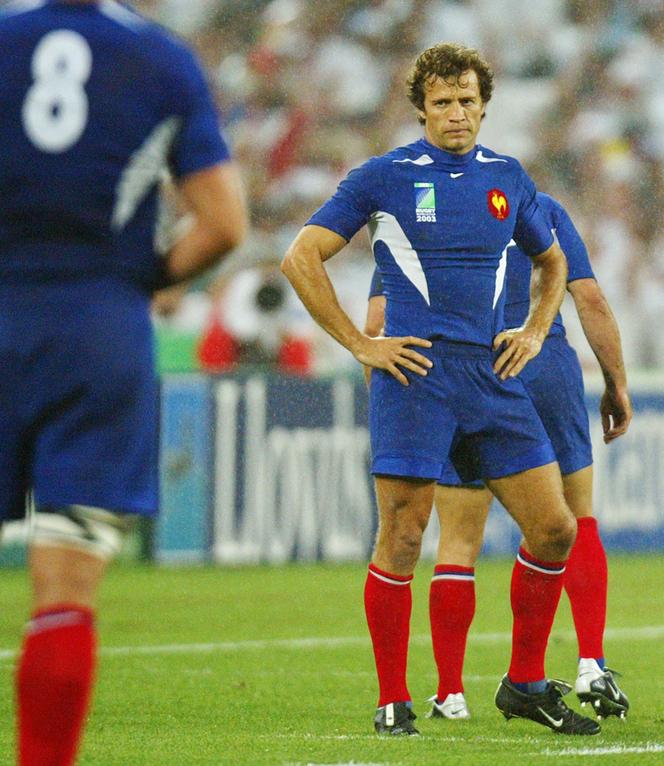


Fabien Galthié couldn't have made a better start to his World Cup coaching career. But, after France's 27-13 victory over New Zealand – which is no small rugby nation – on Friday, September 8, Galthié preferred to remain levelheaded: "There are areas for improvement, but having come through this match and emerged victorious will do us good." Having participated in four editions of the tournament as a player, including one losing final (1999), the coach knew that the competition, which runs until October 28, still had a long way to go.
It was on the eve of a World Cup partly organized by France that Galthié first appeared in Le Monde's pages, on June 13, 1991. At the edge of a news item, readers learned, without further details, that this "scrum-half from Colomiers" had been selected by Les Bleus for a friendly match against Romania. In October 1991, at the start of the world's biggest rugby gathering, Philippe Broussard detailed the characteristics of scrum-halves, those number 9s who are "privileged witnesses of [the] confrontation between the packs." The journalist then turned to the words of the "youngest member of the French team." Aged 22, Galthié explained: "It's a creative position. You're constantly asked to take the initiative."
The task was not always an easy one, and Les Bleus got off to a mixed start, being eliminated in the quarterfinals. "Young Fabien Galthié found it very difficult to 'take over' [Pierre] Berbizier's legacy as scrum-half," Broussard said harshly after the French team's first match. But he praised his performance in the next match, saying he was "an excellent organizer of the game."
Subsequently, Le Monde covered Galthié's early career sparingly. Certainly, in May 1992, journalist Bénédicte Mathieu mentioned his role in the "beautiful adventure" of US Colomiers, a small club from the Toulouse suburbs that had reached the quarterfinals of the French championship for the first time in its history. But his six-month contract in 1995 with a South African club in Cape Town, an unusual experience at the time, was mentioned only in passing, as were some of his injuries. That year, after the withdrawal of several players, at the last moment Galthié took part in the World Cup, organized... in South Africa.
In 1999, after an unsuccessful Les Bleus tour of the Southern Hemisphere, he was left out of the French national team on the eve of another World Cup. But then scrum-half Pierre Mignoni was injured. In a repeat, doors opened at the last minute. Galthié put aside the very real bitterness of his initial ousting and became one of the architects of Les Bleus' fine run to the semifinals, where they beat the All Blacks.
You have 60.93% of this article left to read. The rest is for subscribers only.
